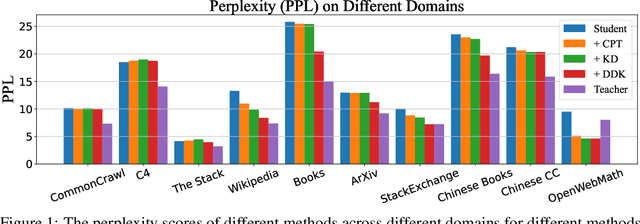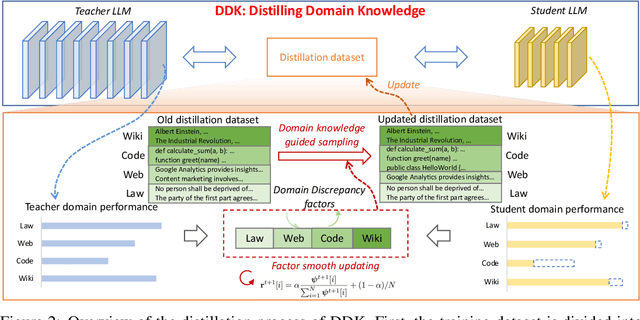Congnan Liu
M2rc-Eval: Massively Multilingual Repository-level Code Completion Evaluation
Oct 28, 2024



Abstract:Repository-level code completion has drawn great attention in software engineering, and several benchmark datasets have been introduced. However, existing repository-level code completion benchmarks usually focus on a limited number of languages (<5), which cannot evaluate the general code intelligence abilities across different languages for existing code Large Language Models (LLMs). Besides, the existing benchmarks usually report overall average scores of different languages, where the fine-grained abilities in different completion scenarios are ignored. Therefore, to facilitate the research of code LLMs in multilingual scenarios, we propose a massively multilingual repository-level code completion benchmark covering 18 programming languages (called M2RC-EVAL), and two types of fine-grained annotations (i.e., bucket-level and semantic-level) on different completion scenarios are provided, where we obtain these annotations based on the parsed abstract syntax tree. Moreover, we also curate a massively multilingual instruction corpora M2RC- INSTRUCT dataset to improve the repository-level code completion abilities of existing code LLMs. Comprehensive experimental results demonstrate the effectiveness of our M2RC-EVAL and M2RC-INSTRUCT.
DDK: Distilling Domain Knowledge for Efficient Large Language Models
Jul 23, 2024



Abstract:Despite the advanced intelligence abilities of large language models (LLMs) in various applications, they still face significant computational and storage demands. Knowledge Distillation (KD) has emerged as an effective strategy to improve the performance of a smaller LLM (i.e., the student model) by transferring knowledge from a high-performing LLM (i.e., the teacher model). Prevailing techniques in LLM distillation typically use a black-box model API to generate high-quality pretrained and aligned datasets, or utilize white-box distillation by altering the loss function to better transfer knowledge from the teacher LLM. However, these methods ignore the knowledge differences between the student and teacher LLMs across domains. This results in excessive focus on domains with minimal performance gaps and insufficient attention to domains with large gaps, reducing overall performance. In this paper, we introduce a new LLM distillation framework called DDK, which dynamically adjusts the composition of the distillation dataset in a smooth manner according to the domain performance differences between the teacher and student models, making the distillation process more stable and effective. Extensive evaluations show that DDK significantly improves the performance of student models, outperforming both continuously pretrained baselines and existing knowledge distillation methods by a large margin.
R2C2-Coder: Enhancing and Benchmarking Real-world Repository-level Code Completion Abilities of Code Large Language Models
Jun 04, 2024



Abstract:Code completion models have made significant progress in recent years. Recently, repository-level code completion has drawn more attention in modern software development, and several baseline methods and benchmarks have been proposed. However, existing repository-level code completion methods often fall short of fully using the extensive context of a project repository, such as the intricacies of relevant files and class hierarchies. Besides, the existing benchmarks usually focus on limited code completion scenarios, which cannot reflect the repository-level code completion abilities well of existing methods. To address these limitations, we propose the R2C2-Coder to enhance and benchmark the real-world repository-level code completion abilities of code Large Language Models, where the R2C2-Coder includes a code prompt construction method R2C2-Enhance and a well-designed benchmark R2C2-Bench. Specifically, first, in R2C2-Enhance, we first construct the candidate retrieval pool and then assemble the completion prompt by retrieving from the retrieval pool for each completion cursor position. Second, based on R2C2 -Enhance, we can construct a more challenging and diverse R2C2-Bench with training, validation and test splits, where a context perturbation strategy is proposed to simulate the real-world repository-level code completion well. Extensive results on multiple benchmarks demonstrate the effectiveness of our R2C2-Coder.
 Add to Chrome
Add to Chrome Add to Firefox
Add to Firefox Add to Edge
Add to Edge